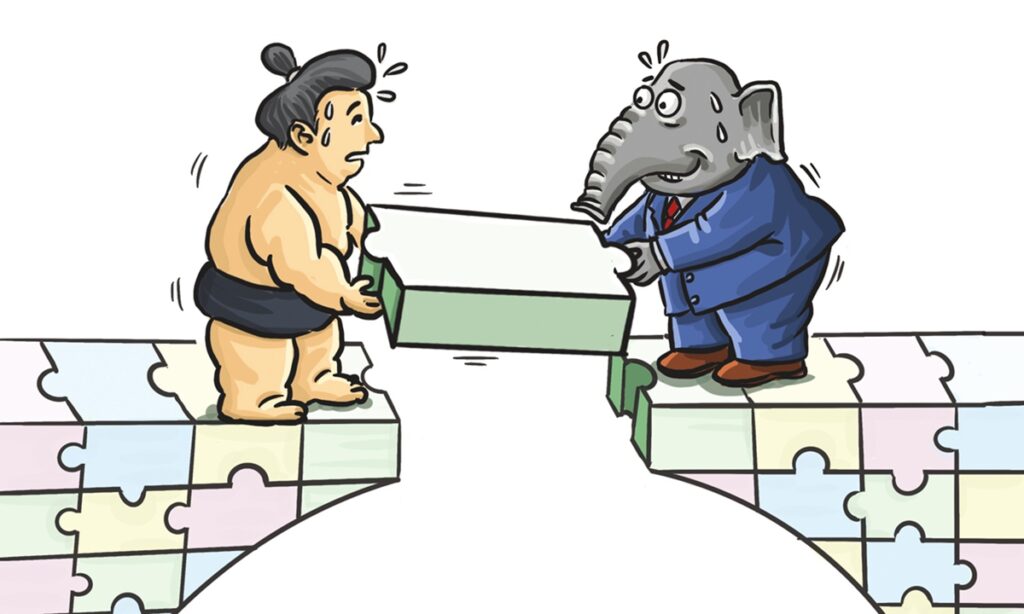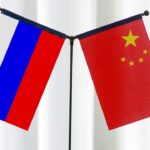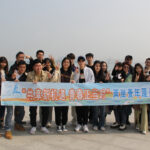Japanese Prime Minister Fumio Kishida is dreaming big as he on Monday landed in New Delhi and kick started a two-day visit in India. There may be deals on trade and investment, but the two sides’ strategic differences can hardly be bridged. Japan may be disappointed once again for failing to meet its high expectations from the trip.
Also on Monday, Bloomberg made a clear-cut summary of Kishida’s goal – convincing India to get tough on Russia, and announcing a new Indo-Pacific plan to counter China. In other words, Japan makes no secret of its attempt to push bloc-confrontation politics and zero-sum games during the tour.
As the geopolitical game between the US and Russia sharply escalates, and as the US regards China as its biggest challenger to its hegemony, Japan has been sparing no effort to become a vanguard in US’ strategy. This year, Japan will take advantage of its G7 presidency to turn the spear of upcoming G7 summit against China and Russia, Liu Jiangyong, vice dean of the Institute of Modern International Relations at Tsinghua University, told the Global Times.
Experts say that this is a journey for Japan to seek support for its own global status, political stance, and to build up the momentum for the G7 Hiroshima summit. Kishida’s formal invitation to Indian Prime Minister Narendra Modi to the G7 summit on Monday is an obvious move to rope New Delhi into the Western camp. Japan has been hoping to add more weight to Western sanctions against Russia. If India can be brought in, it will not only demonstrate Japan’s influence but also facilitate the G7 summit to pass a high-profile resolutions or joint statements on Russia.
It is also reported that Kishida will announce a new plan on Free and Open Indo-Pacific (FOIP) on the soil of India, which is aimed at countering China’s growing influence in the region.
Nevertheless, Kishida will hardly get what he wants.
India will not miss the opportunity to showcase its status as a global leading power at the G7 summit. It may also be seeking support for the G20 summit, to be held in New Delhi in September. But India’s strategy is very different from that of Japan. While Tokyo is a proxy of Washington, New Delhi emphasizes its strategic autonomy. It has been taking a relatively neutral stance between the West and Russia in the Ukraine crisis, and maximizing its interests from its stance. It will not fully lean toward either side, Lan Jianxue, director of the Department for Asia-Pacific Studies at China Institute of International Studies, told the Global Times.
In terms of the Indo-Pacific Strategy, views of the two countries also differ. India has always been taking the Indian Ocean as its own sphere of influence. Yet Japan is turning the waters into an arena for major power competition to contain China.
Even if Japan and India have some overlapping thought in containing China, India will be cautious this time, as it will host two major events this year, namely the G20 Summit and the SCO Summit. Without China’s support, none of them will be held successfully. That being said, India will not go too far in colluding with Japan on the latter’s China strategy, Lan said.
Just as how Kishida’s India visit turned out in 2022, during which Kishida urged Modi to take a tougher line on Russia for the conflict, but a joint statement after talks in New Delhi fell short of condemning Moscow’s actions.
The capability of the G7, an exclusive club of rich countries, has been fading in handling global affairs, and it is clear that Japan wishes to hold high the G7 banner again, Liu said. In this regard, some observers note that Japan may want to boost its influence and cooperation with the G20 through India.
However, if Japan expects more countries to agree with or even join the Western stance in dealing with China and Russia, its ambition is simply too big and unrealistic.
In recent years, India has positioned itself as a voice of the Global South and a bridge between the Southern and Western worlds. But based on the results of recent G20 ministerial meetings held in India, the effect has not been optimistic, according to Lan.
On major international issues, developing countries have their own thinking which clearly differs from that of the Western world. When Western powers try to hijack the G20 agenda, the result is – no agreement can be reached.
Hiroshima will be the venue for the upcoming G7 summit. Experts believe Kishida chose the location simply because he considers Hiroshima to be his hometown. If Japan shows how it cherishes peace and stability, the Hiroshima summit will unleash an unusual significance. But if Japan keeps on promoting hostility, camp confrontation, and zero-sum games, the Hiroshima summit will be full of irony. After all, Hiroshima’s history proves that those who provoked a war would get its punishment. In the current era, will Japan continue to create chaos in the Asia-Pacific region?
(Global Times)




